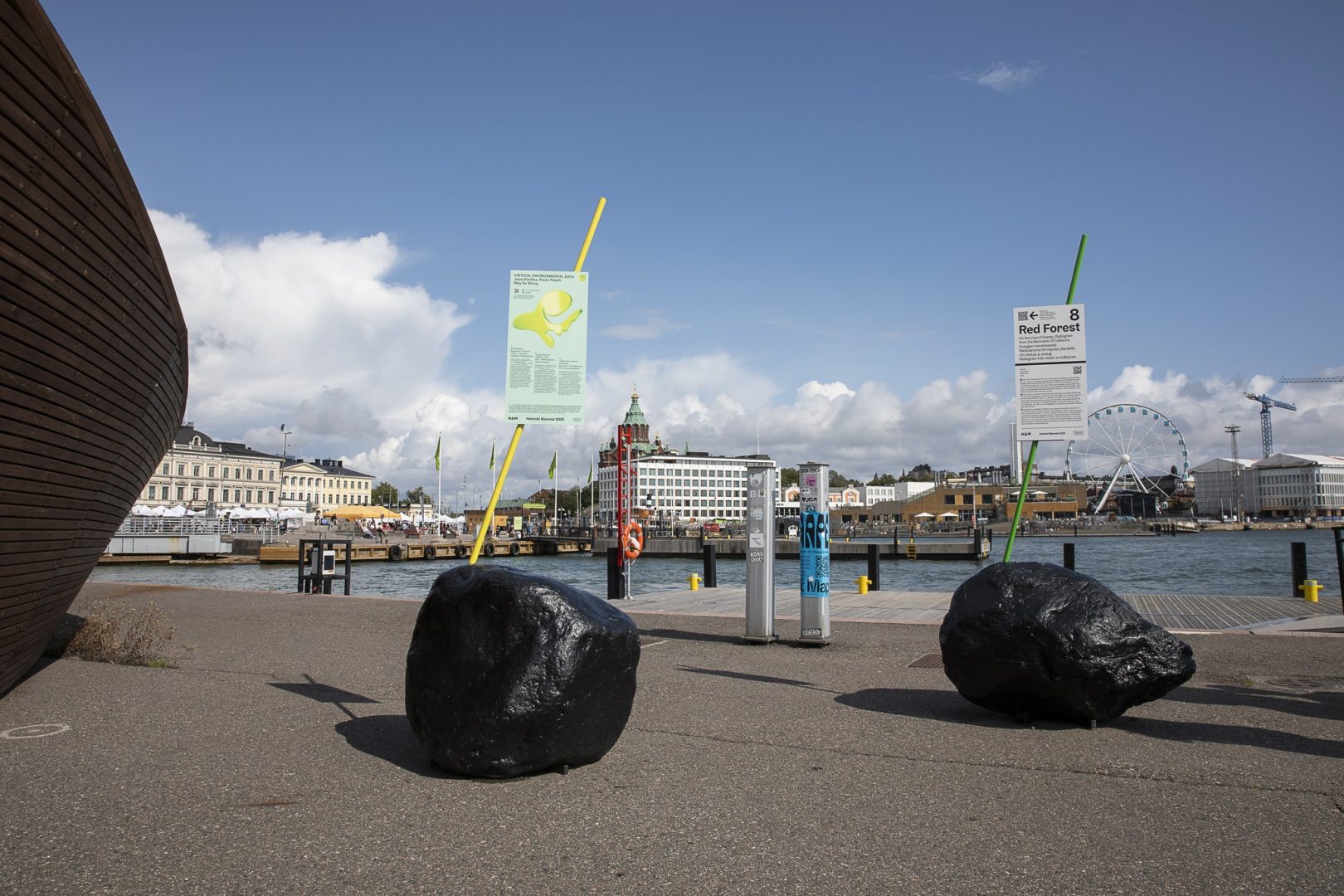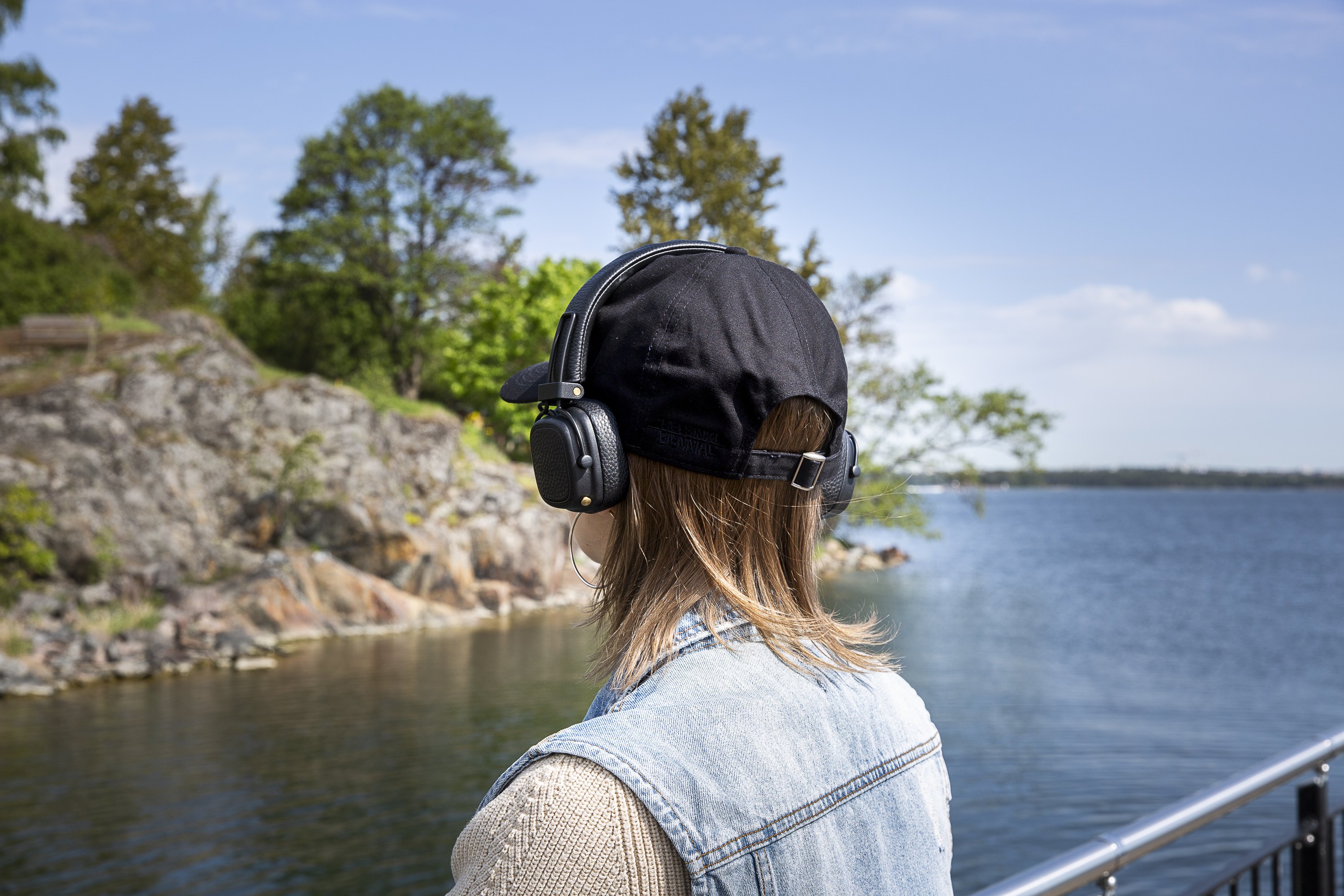Red Forest is a research constellation activated by Oleksiy Radynski, David Muñoz-Alcántara, Diana McCarty and Mijke van der Drift. The name emerged during a research visit to the Chornobyl Nuclear Power Station in spring 2021. The reaction of the forest to Chornobyl’s eco-disaster turned green trees red and the living to not–dead. Mindful of the response of the environment at a variety of scales, including the atomic, Red Forest alludes to this entanglement and resilience, reminding us of the responsibility to face the layers of life in our surroundings, whatever the circumstances. The constellation of Red Forest is not confined to a single discipline, but their work spans media theory, philosophy, anti-colonial praxis, queer theory, feminism, and contemporary critical theory, and their shared practices comprise architecture, radio, film, and performance.
Red Forest is also part of the Red Power movement advancing the collective growth of eco-social dignity, recovery of insurgent-indigenous bonds and trans-futurisms.
On the Loss of Energy continues Red Forest’s investigation into how infrastructural operations are key to contemporary forms of hybrid warfare. By speculating on energy matters in the context of war, this research (in)filtrates a contestation of fossil fascism, environmental racism, and financial colonialism. The Radiogram is Red Forest’s sonic and poetic compositional method of electromagnetic transmissions that links documentary research, speculative history, musical improvisation, and science fiction.
The sound piece is streamed online.
Red Forest convokes the radiation of resistance after the resistance to radiation.
In a Farockian transmission of resistance to extractivist mechanisms of mattering — from waves to atoms, to forms of life and war — the Radiogram summons fragmented connections and exchanges between disparate sites of struggle. It traverses and interweaves orders of reality across geographies: trenches that collapse under atomistic interruptions, logistics that are disfiguring natures, political orders and life worlds.
Tuning in, the remnants of collisions oscillating between atomic and astronomic scales are almost audible in a poetic composition of non-linear frequencies and time-travelling tales. Sonifying reverberations of nuclear terrorism in the Russian capture of Chornobyl; echoing Indigenous resistance to ecocidal and genocidal megaprojects in the Mexican Transisthmian Corridor; trans bodies auto-fictioning as mode of engagement; and whispering militant ghosts and ghost-spells, are haunted by an underlying pulse of (voided) realities that need to be replaced by wiser ways of world-making. Wisdom emitting from forms of struggle that outdistance the sovereign space of the political.
The rage of indignation, protest, break, revolt, rebellion, revolution, and insurgency moving oceans and body-territories energizes these waves.

The sound piece is streamed online, but it also connected to specific sites of access on the biennial route. © HAM/Helsinki Biennial/Sonja Hyytiäinen

Red Forest, On the Loss of Energy. Radiogram from the remnants of collisions. 2023. © HAM/Helsinki Biennial/Sonja Hyytiäinen
Red Forest
On the Loss of Energy.
Radiogram from the remnants of collisions.
2023
Sonic work
Comissioned by HAM/Helsinki Biennial 2023
Working group
Research & dramaturgy: Red Forest
Sound:
Asher Gamedze – Percussions and Drums
Zwide Ndwandwe – Bass
Sergio Castrillón – Cello
David Muñoz-Alcántara – Synthesizer
Mahal Pita – Electronic instruments and digital composing
The Weather Orchestra – generative algorithmic sound processing
Designer & developer: Lizzie Malcolm (Rectangle)
Dialogues & voices:
Jay Bernard
Lyuba Knorozok
Mijke van der Drift
Diana McCarty
David Muñoz-Alcántara
Mix & mastering:
Diana McCarty
Rabih Beaini
Studio works:
Concept Records
Nika Zenova
Mahal Pita
Documentary recordings:
Oleksiy Radynski
David Muñoz-Alcántara
Medios Libres
Tech-consultancy: Ecoforma
Production: Koko Kyky
Special thanks:
Kone Foundation, Giovanna Esposito Yussif, and Joasia Krysa